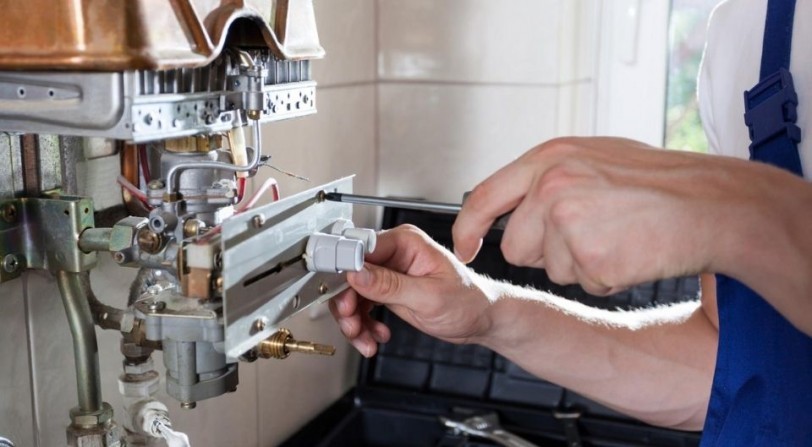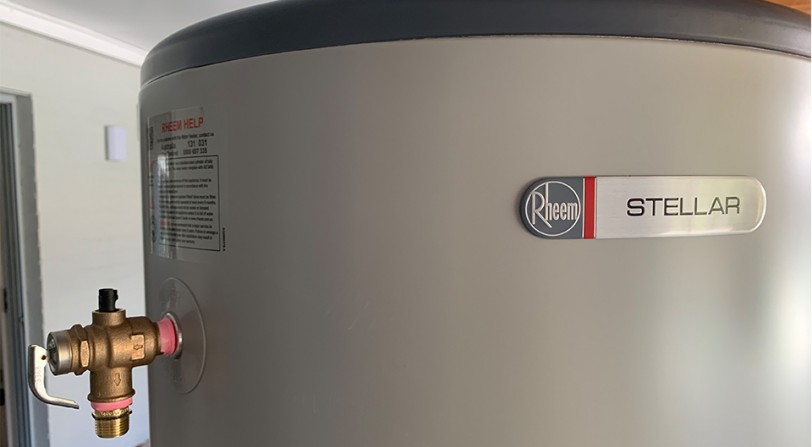When you’re installing a new hot water system in your home, there are a lot of factors to consider: Upfront costs, efficiency, how many family members you have in your house, running costs… These are all valid and necessary questions. However, have you considered how long hot water systems will last?
This could be the most important question to ask yourself, as it affects how many times you’ll be caught having to make these decisions all over again. When it comes to longevity, what hot water system types last the longest? How can you get the longest lifespan out of your existing hot water heater? And, is it really time to say goodbye to my existing system?
What are the factors that dictate the lifespan of a hot water system?
Quality
Essentially, a higher quality system is less likely to prematurely corrode, and corroding is one of the biggest reasons a hot water system will face its D Day. Do your research, read reviews and talk to a hot water specialist about the higher quality brands. Although you can’t guarantee this with everything, hot water system quality tends to scale with price.
Type
Of course, this also applies to the type of hot water system you get. There is a range of hot water systems with their own pros and cons, and they can’t be measured equally. There are factors to electric tanks, gas, solar and heat pumps that will alter the longevity. (More on this below).
Usage
How much you use your hot water system will also impact how long it will last, with greater usage putting greater strain on the system.
Water Quality
Poor quality water (‘hard water’) can prematurely corrode your tank. However, if your house is routed to lower quality water, you can counteract a short life with maintenance.
How long do electric hot water systems last?
Electric hot water systems tend to be more susceptible to corrosion and will last for around 8-15 years. Which is half that of a gas hot water heater, maintenance and water quality always come into play.
How long do gas hot water systems last?
Gas hot water tanks are continuous flow, so there is less risk of corrosion from water sitting in the tank for long periods. This means that a gas hot water system should last you up to 15-20 years if you keep up regular maintenance and you have access to high quality water.
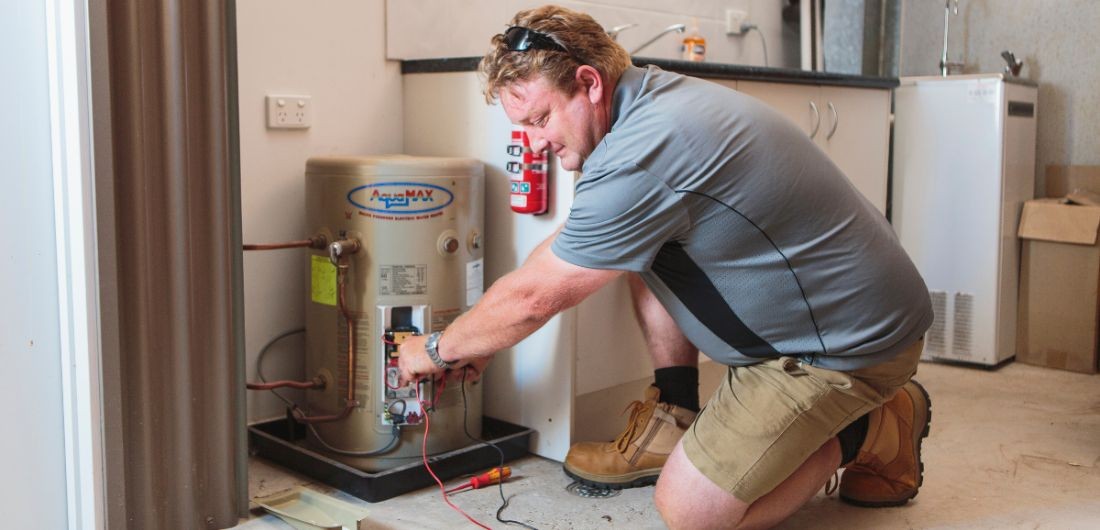
How long do heat pump hot water systems last?
The quality of your heat pump hot water system is a big factor in its longevity, however you can expect that a renowned brand, manufactured with high quality materials and good maintenance plan in place will last you up to 15 years.
How long do solar hot water systems last?
Solar hot water systems can last 10-20 years depending on the materials it is made from and the maintenance plan in place.
How to extend your hot water lifespan?
Getting your hot water system to last as long as possible is key to saving money long term, and avoiding inconvenient disruptions to your hot water supply (nothing worse than being hit with icy water when you’re expecting a steaming shower). So, how can you improve your hot water heaters life expectancy?
Maintenance
It’s life admin, but it’s worth it. Maintaining your hot water system ensures you’re dealing with small issues before they become big issues, and gives you grace time to fix the problem. Maintenance schedules differ from each hot water system, so abide by the manufacturer’s recommendations and get it done by a qualified professional.
Inspect and replace your anode rod
The sacrificial anode is a rod that sits in the tank and oxidises more quickly than the tank’s metals, corroding on the tank’s behalf. If that rod is not checked regularly and replaced when needed, it hits capacity and the tank takes the brunt of corrosion.
Inspect the valve
Faulty pressure valves are common culprits to hot water systems carking it. Pressure valves regulate the pressure in the system; too high and the tank could burst, too low and it’s underperforming and could be a symptom of a function issue. Inspect it regularly, clean off any collected minerals built up around it and replace if necessary.
Is it time to replace your hot water system?
If it’s time to replace your hot water system, chances are you’re already experiencing the tell tale signs. Aside from the obvious disappearance of your hot water, there are a few red flags to look out for.
Your hot water system has exceeded its warranty
Your warranty is a good indication of your hot water system’s expected use by date. If you are at or beyond this time frame, it’s time to start investigating a new system. If you don’t have the system’s information, seek a professional opinion on its health and age.
You can see rust
Rust is corrosive and corrosion is the beginning of the end of your hot water system. If you can see rust on the fittings, you likely have a leak. This should be seen by a plumber as they can be difficult to DIY effectively.
Strange noises
Outside of the expected sounds you might hear from a heat pump, your hot water system should not be loud. While some hissing could be a minor issue like a faulty relief valve discharging (a relatively simple replacement), other strange noises likely mean a bigger problem.
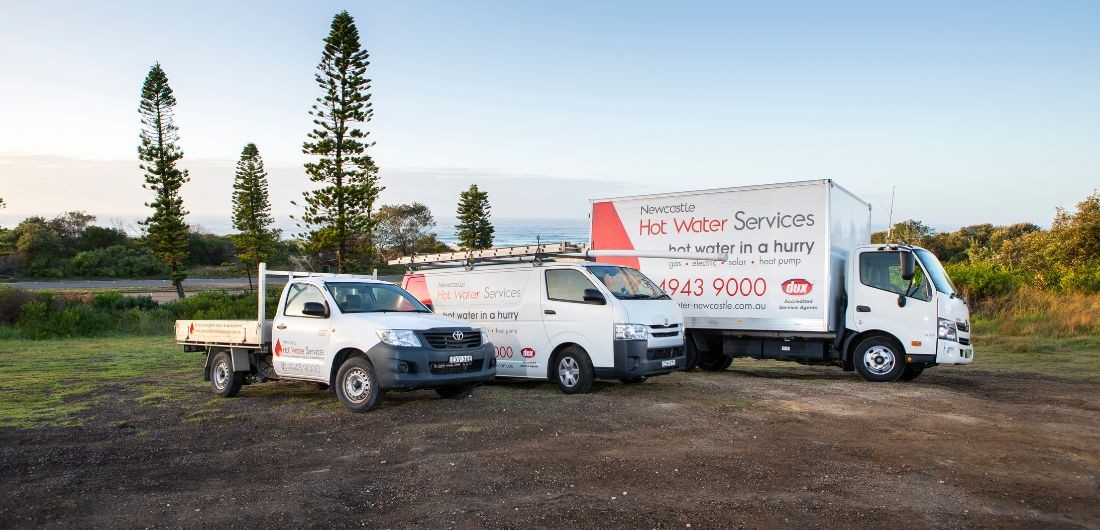
What's the best hot water system for you?
So, now that you know you need a new reliable hot water system, what's the best hot water system for you? Here we'll outline all of the different types of hot water systems available to you and which will be the most efficient for your needs.
Gas hot water advantages
Fast and reliable
Gas hot water heaters are fast workers, typically taking half the time of electric systems (taking around one hour for 200L). This is perfect if you have a larger family, or a penchant for long showers, and want as close to a guarantee of not running out of hot water as possible.
Cost effective
Natural gas is generally less expensive than electricity, so the use of gas water heating systems will save you some money on your water heating bills.
Functions in blackouts
When a blackout or power outages occur your hot water will keep running for a little while, but electrical hot water systems will eventually run cold. A gas hot water heater that can be ignited with a pilot light (as opposed to an electric ignition), however, will survive through a blackout.
Gas hot water disadvantages
Difficult installation and higher costs
Gas water heaters are notoriously more difficult to install if your home has never had one before and a ventilation system is needing to be installed. That said, having a reliable and qualified gas hot water plumber to do the job, the complex installation is in the hands of professionals and not something that is necessary to worry about.
More expensive upfront
Although the gas water heater will save you on your bills over time, it is a bigger expense upfront. It typically takes about a year for the system to level out that cost.
Electric hot water advantages
Lower upfront costs
Unlike the gas heater, electric hot water heaters are known to be quite reasonably priced upfront, which is appealing for a lot of households. Price is dependent on the size and type of your heater, but relative to other options on the market the electric systems are the most affordable. This is mostly due to the ease of installation.
Good availability
For the most part, houses will be on an electric grid making it no issue to install. This is compared to gas, where you need to ensure you’re on a natural gas line, or have a propane source available (less common than the electricity).
Safe
Saying an electric hot water heater is safe is not to say that a gas one isn’t. However, just by its nature, electricity (that has been sufficiently maintained) is generally a less hazardous element due to gas being combustible and more prone to leaks than any safety concern an electrical system would provide.
Electric hot water disadvantages
Higher operating costs
Electricity can be quite pricey in general, and there’s no exception for water heating. If you have an electric water heater, it will be worth shopping around for your utility provider and find the best deal you can find for your usage needs.
Won’t last a power outage
As mentioned, a blackout will impede your ability to access hot water during the outage and for a time after due to its longer heating time. When there is a storm or other event (such as a vehicle accident involving a power pole), you can expect to lose your hot water. Hot water systems can take up to two hours to reheat.
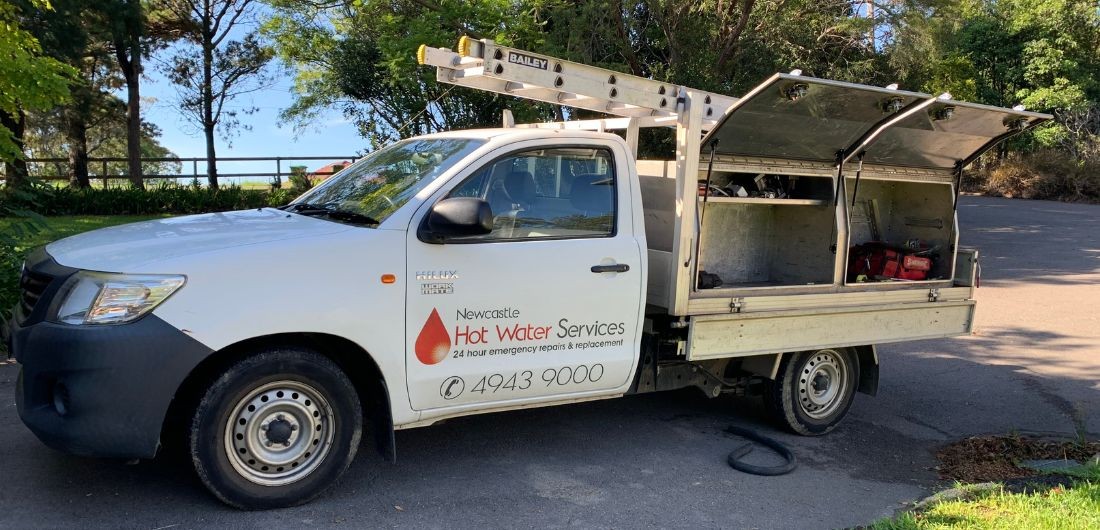
Solar hot water advantages
Environmentally friendly
Solar hot water heaters emit much lower greenhouse gas emissions and exist from a natural heating and energy source (the sun). As residential heating is the culprit for some of our highest contributors of greenhouse gases, an electric storage system is a really easy and effective way of lifting your carbon footprint.
Lower long term costs
Solar is commonly considered the most cost effective energy source and this is certainly so for water heating. Although you still need to consider your personal hot water usage, solar heating is a good financially viable option if you’re looking to lower your long term water heating bills.
Solar hot water disadvantages
More complex installation
As with gas, the installation process can be easy on you if it is done by a team of licensed and experienced experts (like we have here at Newcastle Hot Water Services), however you do need to consider the configuration of your home with regard to direct sunlight. This might mean removing any obstructions (such as overhanging branches). You will also need to know if your roof can withstand the weight of the solar panels and reinforce if required.
Higher upfront costs
Solar water heating (or solar energy of any description) typically has a high upfront cost. However, it is worth investigating government rebates on these costs as they could bring the initial payment down to a more competitive price.
Heat pump hot water advantages
Energy efficient
By design, heat pump water systems are very energy efficient as they don't have to work overtime to generate heat, instead pull from the heat in the air - even waste heat. This also makes them cost effective, saving you up to two thirds of an energy bill you'd otherwise receive, and can last up to 15 years without replacing.
Booster options
For colder seasons, times of day or for high usage times, you can opt for a booster to be integrated with your heat pump water system to avoid not having enough hot air to satisfy the usage needs of your family. Let's leave the icy cold showers to elite athletes.
Government incentives
They don't always exist, and when they do they don't always apply to every state. However, the government does offer rebate incentives to solar and heat pump installations on occasion. It can save you thousands to take advantage of these rebates when they come up, so keep your eye out for them, and check what is available to your state.
Heat pump hot water disadvantages
Higher up front costs
The cost of installing a heat pump water system can often frighten people off the option. It's undeniable that they can cost up to double that of other water heating options, and it's understandable that this is out of reach for a lot of people. However, their cost-effectiveness over time does offer them the reputation of paying for themselves after a year or so of use.
Longer heat-up time through high demand
On colder days and night, or during high demand for hot water (typically in the mornings and evenings), heat pump water systems run out of hot air to generate, meaning your running water takes a long time to reach a desirable heat or it needs a while to rest and recharge (so to speak). This does typically become less of an issue in the hotter months, as the natural supply of hot air is more readily available.
Can be noisy
Some heat pump water systems can be a little loud, and are installed outside, which means they're not ideal to place near the bedroom window of neighbours! Typically they aren't that disruptive to peace, but it's just important to be mindful about where you place your pump so that it doesn't disturb you or people living close.
Looking to troubleshoot a water heater you already own?
or


